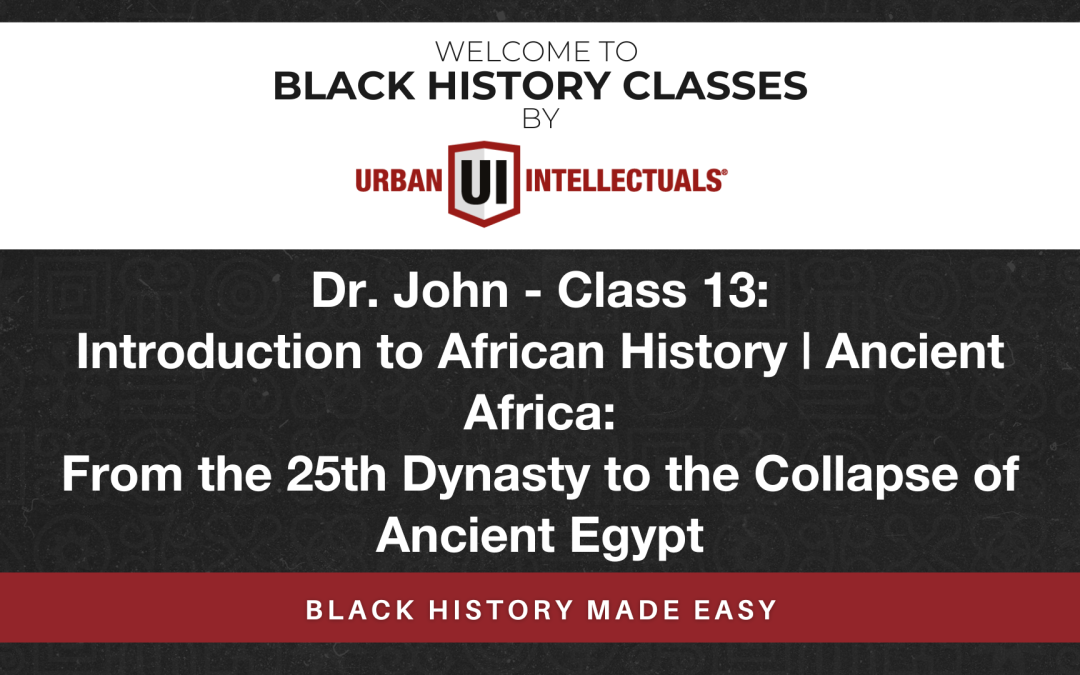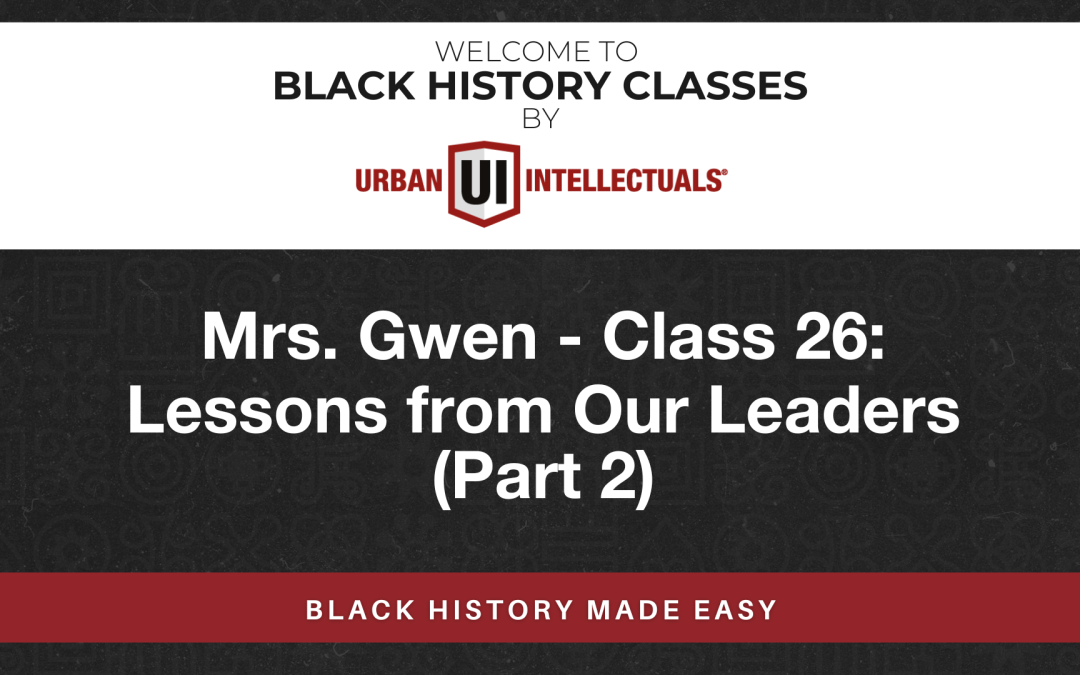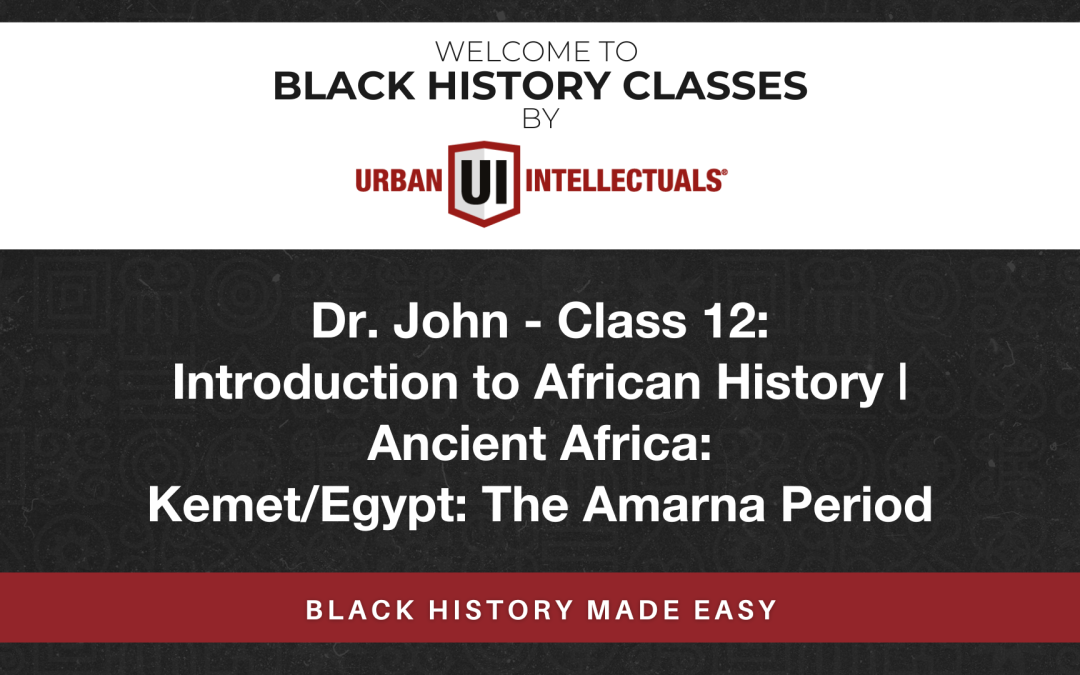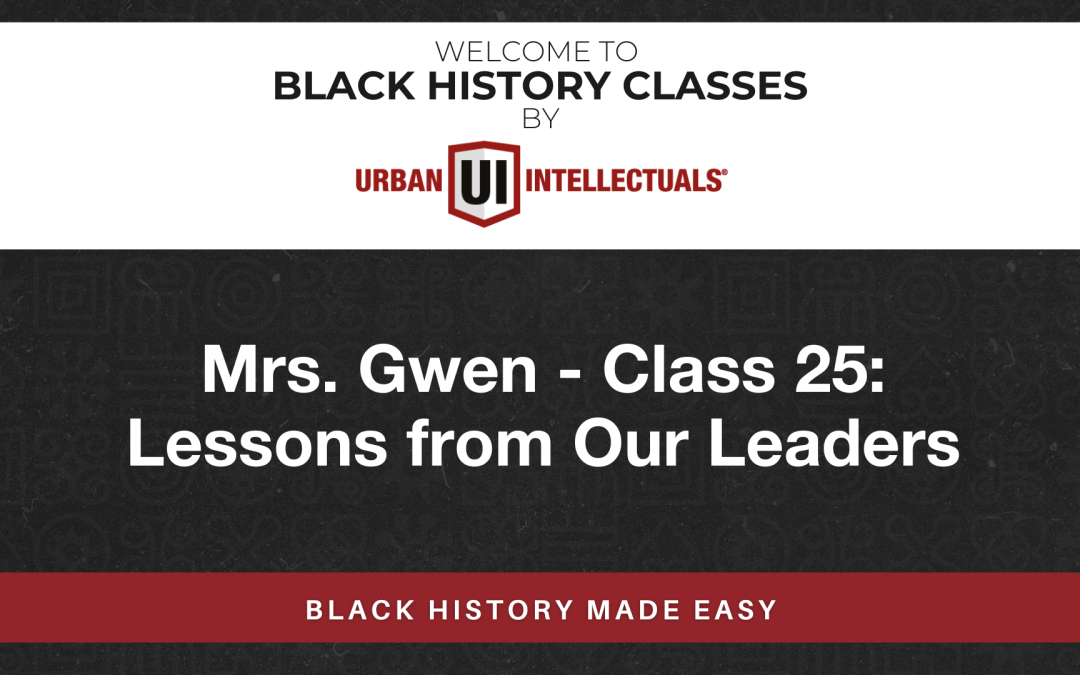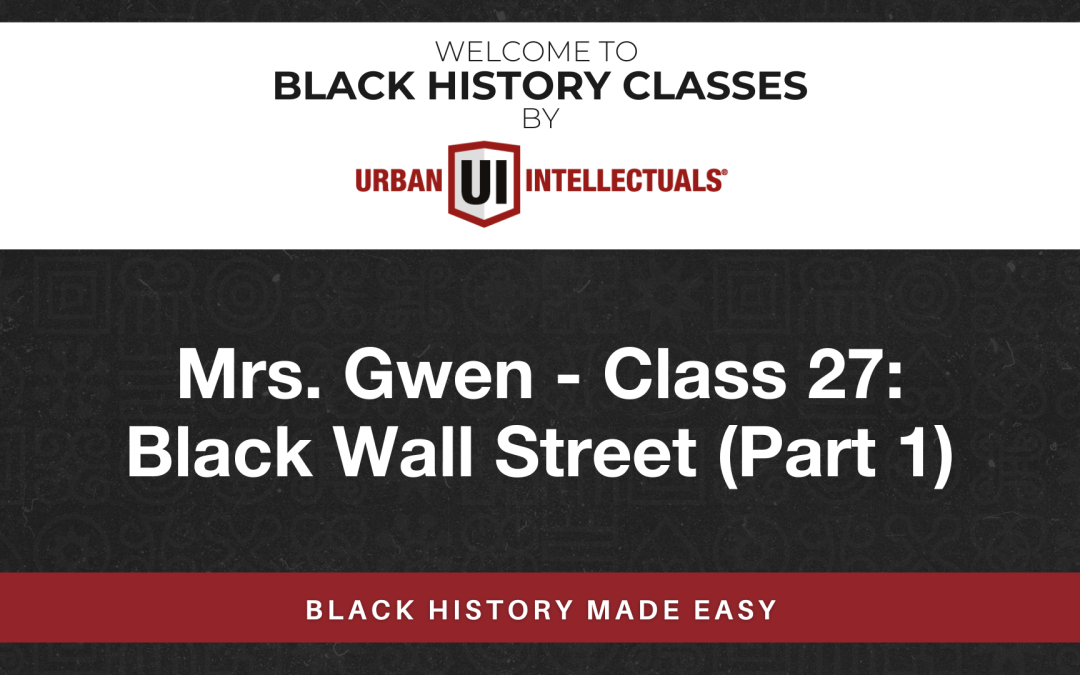
Class 27: Black Wall Street (Part 1)
CLASS OVERVIEW
Have a Mind Change about Black Wealth, then learn about early towns and communities founded by African Americans.
BEFORE YOU GET STARTED:
- Please check the materials that go with this lesson and print relevant materials.
- Also, check out the books and products the teachers use for further learning.
- Reach out to support@urbanintellectuals.com if you have any questions or issues.
- Some links may be affiliate links where we may earn a small commission from purchases.
Sources:
N/A
Study Guide
1. We need to readjust our thinking about wealth and thriving communities.
We have always been a people who have had wealth. Africa is the wealthiest continent on the face of the earth.
2. Egypt known as Kemet, in Alkebulan, known as Africa, was full of wealth and knowledge.
3. From 711AD – 1492AD, the Moors bought their wealth of knowledge to Portugal and Spain.
4. In 1037 AD, there was no poverty in the land of Ghana ruled by King Tenkemenin. 10,000 people were fed every day and the people had education and purpose.
5. Mansa Musa of Mali in the 1300 AD was and still is the richest man who ever lived.
6. The Songhai Empire in 1400 AD expanded and was a thriving empire with universities and trading of salt, gold, copper, cotton, leather, silk, books and knowledge.
7. Before and after enslavement there were 88 to 200 towns established by black people.
8. The first black town in the United States was created in 1836 when Free Frank McWhorter, an ex- Kentucky slave, who founded the community of New Philadelphia, Illinois. He and his wife were able to buy their freedom and 14 other family members. They acquired land and sold it to African Americans and European families who were attracted to the vision of the community dedicated to freedom. They helped on the Underground Railroad. When the real railroad did not come through their town, it ended.
9. More town emerged in the first years after the Civil War. There were two other towns during reconstruction in Texas which had the greatest amount of communities. One was Shankleville in 1867 and Kendleton in 1870 these communities population by ex-slaves from surrounding countryside, arose from the desire of free people to own land without interference.
10. Frederick Douglass’s son Charles Douglas purchased 40 acres of land and name it HighLand Beach and sold land to African Americans after he was shunned at a restaurant in Chesapeake. He built two beautiful homes one for himself and his family and the other one for Frederick Douglas. Frederick Douglas did not live to stay in the home, or look across the Chesapeake and see where he had been enslaved and now was a free and highly respected man as Charles had hoped he would.
Highland Beach was incorporated in 1922 and still exist today with 60 homes and a few remaining African American year round residents.
11. The first Black Wall Street was established in Durham North Carolina in the late 1800s and early 1900s. It is located on Parrish Street and is the home of the Mechanics and Farmers Bank and North Carolina mutual Life insurance company which was founded on August 22, 1898 by local black social leaders. Harold R. Davis, 97, former Chief Operations Officer of the North Carolina Mutual Life Insurance, informed the class that the North Carolina Mutual was started by a group of men in a barber shop. Another class member who resides in Durham, North Carolina, stated Parrish Street had restaurants; barber shops; beauty parlors; libraries; the bank and many other black-owned businesses. Parrish Street is now a part of downtown Durham, North Carolina and remains a business district with many black businesses.
Take aways:
We have always had wealth as a people.
Before and after enslavement ended, African American formed 88 – 200 communities.
Thriving communities have one thing in common, purpose.
How can you bring purpose to your community?
THE QUIZ
- Tenkamenin – collective responsibility
- Sundiata – Always know you can
- Mansa Musa – Take the Journey with Faith
- Harriet Chapman – keep going
- Frederick Douglass – Speak Truth to power
- Marcus Garvey – Rise You Mighty People
- Malcolm X – By Any Means Necessary
- Dr. Martin L. King – We Shall Overcome

